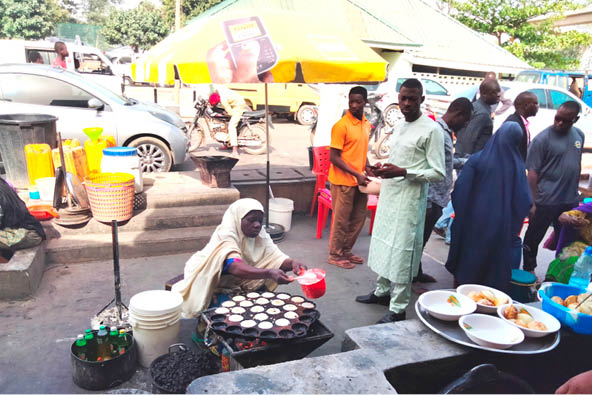My proposed revision of the ease of doing of doing Nigerian business index (I)
In June 2016, I finally summoned courage to challenge the World Bank’s Ease-of-Doing-Business Index. See https://opinion.premiumtimesng.com/2016/06/08/ease-business-tope-fasua

FILE PHOTO
In June 2016, I finally summoned courage to challenge the World Bank’s Ease-of-Doing-Business Index. See https://opinion.premiumtimesng.com/2016/06/08/ease-business-tope-fasua The index contains 10 sub-indices by which a country is judged whether it is doing better in encouraging businesses. These are: Upon closer scrutiny, I believed, right off the bat, that numbers 2, 4, 6, 7, 8, and 10 are rather tangential. But it was index number 6 (protecting minority investors) that gave the whole index away as something coined largely for foreign companies. Whereas it is great to encourage foreign investors and the index could be maintained for that purpose, I believe that at least part of our focus should be on making the lives of local investors a little easier too. Imagine number 10! I cannot imagine opening a business as a local and be thinking about the ease of declaring bankruptcy or insolvency. Not also, that if this index, as is, is meant to help foreign investors, why include ease of obtaining credit? The case of Etisalat’s challenges in Nigeria revealed that oftentimes, these foreign investors that we bring in, end up putting so much pressure on our financial system rather than bringing in their own money. What we want is capital inflow, and a bit of expertise for our people. Isn’t that right? Anyhow, I decided to develop my own index around what really matters for Nigerian businesses. I think we should encourage our own people to begin to fill in the space. For now, very few Nigerians are in the space where value is being added to any products. Yet, our dependency on foreigners must be reversed. I don’t believe that there is any big deal in beginning to strive to do what foreigners have always done for us. I think that to save ourselves from this long-dreaded cataclysm we need to start to move into some spaces. If I am to think of what issues disturb, delay, and destroy businesses in Nigeria today (owned by anyone indeed), and which has to be tackled urgently, they are: Most of the points are self-explanatory, and of course, I adopted some of the metrics of the World Bank EODB which I believe is only partially correct. Businesses do need energy to stay alive anyhow you slice and dice it. Right now, the tariffs have gone through the roof and the DISCOs are threatening more hikes. Diesel cost is also killing companies. But that is not the whole story about businesses. Neither is access to credit – another valid metric that I adopted in my own EODB for Nigerian businesses. Infrastructure availability beyond energy is a problem. Many businesses crumble because of the difficulty in accessing them, and the general malaise around infrastructure is a major factor for success or failure. What about insecurity. Without this, nothing moves. In fact, with the insecurity, many people prefer to stay at home, and even purchasing power as well as eagerness by consumers to spend. One thing that most analysts don’t talk about as often as they should, is the ease of finding good staff and retaining them. Every Nigerian wants to ‘blow’ and no one is willing to put in fairly good time learning and helping to grow a small business. These days, only women stay for a while. Boys/men are restless. And many even look for how to defraud organisations.
